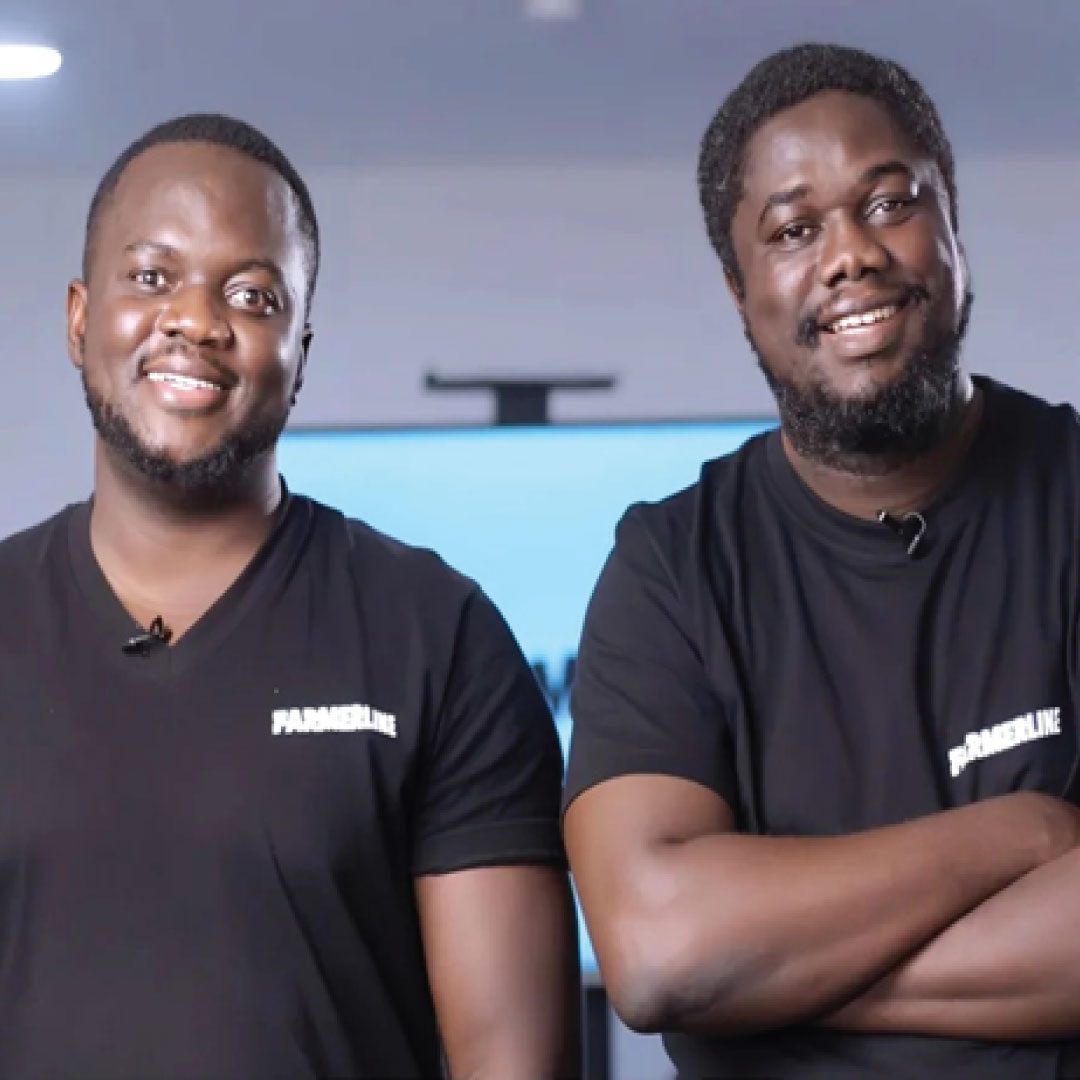Farmerline To The Rescue: Farmers currently feed one-third of the world’s population, but by 2050, they will need to raise production by 70% to feed nine billion people. Post-harvest losses of food cereals are currently projected to be about $4 billion in Sub-Saharan Africa due to reasons such as lack of timely agronomic education. Meanwhile, they utilise 14 kg of fertiliser per hectare, compared to 120 kg of their global counterparts.
Sub-Saharan Africa’s agricultural sector has been dubbed the “new oil” in recent years, with forecasted revenues of $1 trillion by 2030. This is in an economy that derives 23% of its GDP from agriculture, with 60% of its population involved in small-scale farming. However, to reach full agricultural potential, the region will require eight times more fertiliser and six times more improved seeds to increase its agricultural output and overall economic contribution.
Farmerline, Ghanaian Agritech has stepped in to provide technologies envisaged to boost farmers’ access to high-quality production inputs and education on optimal agricultural practices, including how to better deal with climate change’s effects. Its solutions are also designed to help farmers gain faster market access, resulting in more income and less post-harvest loss and waste.
Farmerline Milestone
Alloysius Attah and Emmanuel Owusu Addai founded Farmerline in 2013. It is now set for a quick expansion, with aspirations to reach 300,000 farmers by 2022, a nearly 400% increase over last year’s growth. It will begin its expansion in Ghana before moving to the adjacent Ivory Coast, thanks to a new $12.9 million pre-Series A investment round ($6.4 million equity and $6.5 million debt).
Read Also : The Food Lab, An Egyptian Startup, Receives $45M for Expansion
Farmerline works with agribusinesses (often small retail stores that stock farm inputs) to help farmers access high-quality farm supplies. Farmerline uses these shop owners, who are often the first point of contact for farmers, to disseminate educational materials and bring farmers together for training. The partnering shops use Mergdata; the startup’s patented AI technology platform for supply chain intelligence, to digitize the farmers they serve and provide the data needed by agritech to forecast agricultural supply needs.
“We are tapping into that network of agribusiness, and in a way, we are tapping into a network of trust — the relationship that these shop owners have with farmers to help us expand,” said Attah.
The partnership with retailers, said Attah, emerged after Farmerline realized that working directly with the farmers would amount to “competing with local businesses, and it didn’t make any sense. The cost of going door to door to each farmer was high,” he said.
Read Also : How SHiip is Powering Hassle-FREE Shipping for African Merchants
“Working with the agribusinesses made our businesses scalable, and it also helped us make more impact, especially during the pandemic when we couldn’t travel — they became our eyes and ears on the ground. We sent trucks full of fertiliser and seeds to them that they would then distribute to farmers. That model worked quite well.”
According to Attah, the startup doubled its direct reach last year to 79,000 farmers, up from 36,000 in 2020 and 8,000 in 2019.
Posing As The Amazon for Farmers
Attah reveals that the agritech will use its first equity funding to build physical infrastructures like warehouses and distribution networks.
“We think of ourselves as the Amazon of farmers… a digital and physical infrastructure powering a marketplace that allows the movement of goods and services to and from rural areas,” says Attah.
“We plan to use the funding to strengthen our infrastructure, warehouses and distribution channels. Having a network of partners that can help us quickly move inputs like fertiliser and seeds to rural areas and farm produce from rural areas is important and part of what we do. We don’t intend to bring all logistics and storage in-house, but we want to be more efficient, and that means working with the right partners,” he added.
Read Also : ETAP Raises $1.5 Million in Pre-Seed Capital to Expand Insurance Coverage in Africa
With Mergdata, Farmerline can tell the performance of their partnering agribusinesses (retail shops) and develop a credit scoring program that guides the extension of business expansion loans.
The agritech has digitised over 1 million farmers in 26 countries across the globe through third-party licensing for Mergdata — which is now used by 180 clients, including governments, non-governmental organizations, and agri-companies to ensure transparency in their supply chain and traceability. Benin, in West Africa, uses the platform as a national market information system.
